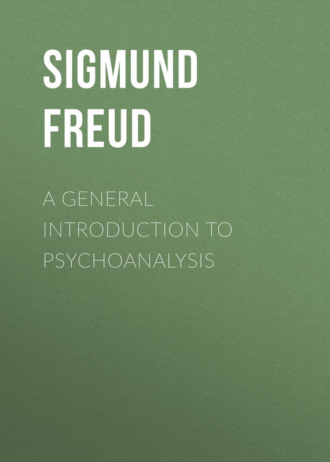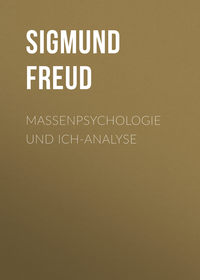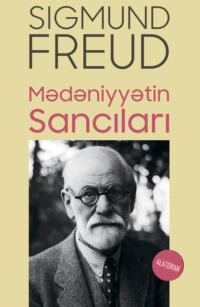 полная версия
полная версияA General Introduction to Psychoanalysis
You will point out to me that I am again making an assumption, the second in this short discourse, and that I am greatly reducing the credibility of my claim. On the assumption that the dream is a psychic phenomenon, on the further assumption that there are unconscious things in man which he knows without knowing that he knows, etc. – we need only realize clearly the intrinsic improbability of each of these two assumptions, and we shall calmly turn our attention from the conclusions to be derived from such premises.
Yet, ladies and gentlemen, I have not invited you here to delude you or to conceal anything from you. I did, indeed, announce a General Introduction to Psychoanalysis, but I did not intend the title to convey that I was an oracle, who would show you a finished product with all the difficulties carefully concealed, all the gaps filled in and all the doubts glossed over, so that you might peacefully believe you had learned something new. No, precisely because you are beginners, I wanted to show you our science as it is, with all its hills and pitfalls, demands and considerations. For I know that it is the same in all sciences, and must be so in their beginnings particularly. I know, too, that teaching as a rule endeavors to hide these difficulties and these incompletely developed phases from the student. But that will not do in psychoanalysis. I have, as a matter of fact, made two assumptions, one within the other, and he who finds the whole too troublesome and too uncertain or is accustomed to greater security or more elegant derivations, need go no further with us. What I mean is, he should leave psychological problems entirely alone, for it must be apprehended that he will not find the sure and safe way he is prepared to go, traversable. Then, too, it is superfluous for a science that has something to offer to plead for auditors and adherents. Its results must create its atmosphere, and it must then bide its time until these have attracted attention to themselves.
I would warn those of you, however, who care to continue, that my two assumptions are not of equal worth. The first, that the dream is a psychic phenomenon, is the assumption we wish to prove by the results of our work. The other has already been proved in another field, and I take the liberty only of transferring it from that field to our problem.
Where, in what field of observation shall we seek the proof that there is in man a knowledge of which he is not conscious, as we here wish to assume in the case of the dreamer? That would be a remarkable, a surprising fact, one which would change our understanding of the psychic life, and which would have no need to hide itself. To name it would be to destroy it, and yet it pretends to be something real, a contradiction in terms. Nor does it hide itself. It is no result of the fact itself that we are ignorant of its existence and have not troubled sufficiently about it. That is just as little our fault as the fact that all these psychological problems are condemned by persons who have kept away from all observations and experiments which are decisive in this respect.
The proof appeared in the field of hypnotic phenomena. When, in the year 1889, I was a witness to the extraordinarily enlightening demonstrations of Siebault and Bernheim in Nancy, I witnessed also the following experiment: If one placed a man in the somnambulistic state, allowed him to have all manner of hallucinatory experience, and then woke him up, it appeared in the first instance that he knew nothing about what had happened during his hypnotic sleep. Bernheim then directly invited him to relate what had happened to him during the hypnosis. He maintained he was unable to recall anything. But Bernheim insisted, he persisted, he assured him he did know, that he must recall, and, incredible though it may seem, the man wavered, began to rack his memory, recalled in a shadowy way first one of the suggested experiences, then another; the recollection became more and more complete and finally was brought forth without a gap. The fact that he had this knowledge finally, and that he had had no experiences from any other source in the meantime, permits the conclusion that he knew of these recollections in the beginning. They were merely inaccessible, he did not know that he knew them; he believed he did not know them. This is exactly what we suspect in the dreamer.
I trust you are taken by surprise by the establishment of this fact, and that you will ask me why I did not refer to this proof before in the case of the slips, where we credited the man who made a mistake in speech with intentions he knew nothing about and which he denied. "If a person believes he knows nothing concerning experiences, the memory of which, however, he retains," you might say, "it is no longer so improbable that there are also other psychic experiences within him of whose existence he is ignorant. This argument would have impressed us and advanced us in the understanding of errors." To be sure, I might then have referred to this but I reserved it for another place, where it was more necessary. Errors have in a measure explained themselves, have, in part, furnished us with the warning that we must assume the existence of psychic processes of which we know nothing, for the sake of the connection of the phenomena. In dreams we are compelled to look to other sources for explanations; and besides, I count on the fact that you will permit the inference I draw from hypnotism more readily in this instance. The condition in which we make mistakes most seem to you to be the normal one. It has no similarity to the hypnotic. On the other hand, there is a clear relationship between the hypnotic state and sleep, which is the essential condition of dreams. Hypnotism is known as artificial sleep; we say to the person whom we hypnotize, "Sleep," and the suggestions which we throw out are comparable to the dreams of natural sleep. The psychical conditions are in both cases really analogous. In natural sleep we withdraw our attention from the entire outside world; in the hypnotic, on the other hand, from the whole world with the exception of the one person who has hypnotized us, with whom we remain in touch. Furthermore, the so-called nurse's sleep in which the nurse remains in touch with the child, and can be waked only by him, is a normal counterpart of hypnotism. The transference of one of the conditions of hypnotism to natural sleep does not appear to be such a daring proceeding. The inferential assumption that there is also present in the case of the dreamer a knowledge of his dream, a knowledge which is so inaccessible that he does not believe it himself, does not seem to be made out of whole cloth. Let us note that at this point there appears a third approach to the study of the dream; from the sleep-disturbing stimuli, from the day-dreams, and now in addition, from the suggested dreams of the hypnotic state.
Now we return, perhaps with increased faith, to our problem. Apparently it is very probable that the dreamer knows of his dream; the question is, how to make it possible for him to discover this knowledge, and to impart it to us? We do not demand that he give us the meaning of his dream at once, but he will be able to discover its origin, the thought and sphere of interest from which it springs. In the case of the errors, you will remember, the man was asked how he happened to use the wrong word, "vorschwein," and his next idea gave us the explanation. Our dream technique is very simple, an imitation of this example. We again ask how the subject happened to have the dream, and his next statement is again to be taken as an explanation. We disregard the distinction whether the dreamer believes or does not believe he knows, and treat both cases in the same way.
This technique is very simple indeed, but I am afraid it will arouse your sharpest opposition. You will say, "a new assumption. The third! And the most improbable of all! If I ask the dreamer what he considers the explanation of his dream to be, his very next association is to be the desired explanation? But it may be he thinks of nothing at all, or his next thought may be anything at all. We cannot understand upon what we can base such anticipation. This, really, is putting too much faith in a situation where a slightly more critical attitude would be more suitable. Furthermore, a dream is not an isolated error, but consists of many elements. To which idea should we pin our faith?"
You are right in all the non-essentials. A dream must indeed be distinguished from a word slip, even in the number of its elements. The technique is compelled to consider this very carefully. Let me suggest that we separate the dream into its elements, and carry on the investigation of each element separately; then the analogy to the word-slip is again set up. You are also correct when you say that in answer to the separate dream elements no association may occur to the dreamer. There are cases in which we accept this answer, and later you will hear what those cases are. They are, oddly enough, cases in which we ourselves may have certain associations. But in general we shall contradict the dreamer when he maintains he has no associations. We shall insist that he must have some association and – we shall be justified. He will bring forth some association, any one, it makes no difference to us. He will be especially facile with certain information which might be designated as historical. He will say, "that is something that happened yesterday" (as in the two "prosaic" dreams with which we are acquainted); or, "that reminds me of something that happened recently," and in this manner we shall notice that the act of associating the dreams with recent impressions is much more frequent than we had at first supposed. Finally, the dreamer will remember occurrences more remote from the dream, and ultimately even events in the far past.
But in the essential matters you are mistaken. If you believe that we assume arbitrarily that the dreamer's next association will disclose just what we are seeking, or must lead to it, that on the contrary the association is just as likely to be entirely inconsequential, and without any connection with what we are seeking, and that it is an example of my unbounded optimism to expect anything else, then you are greatly mistaken. I have already taken the liberty of pointing out that in each one of you there is a deep-rooted belief in psychic freedom and volition, a belief which is absolutely unscientific, and which must capitulate before the claims of a determinism that controls even the psychic life. I beg of you to accept it as a fact that only this one association will occur to the person questioned. But I do not put one belief in opposition to another. It can be proved that the association, which the subject produces, is not voluntary, is not indeterminable, not unconnected with what we seek. Indeed, I discovered long ago – without, however, laying too much stress on the discovery – that even experimental psychology has brought forth this evidence.
I ask you to give your particular attention to the significance of this subject. If I invite a person to tell me what occurs to him in relation to some certain element of his dream I am asking him to abandon himself to free association, controlled by a given premise. This demands a special delimitation of the attention, quite different from cogitation, in fact, exclusive of cogitation. Many persons put themselves into such a state easily; others show an extraordinarily high degree of clumsiness. There is a higher level of free association again, where I omit this original premise and designate only the manner of the association, e.g., rule that the subject freely give a proper name or a number. Such an association would be more voluntary, more indeterminable, than the one called forth by our technique. But it can be shown that it is strongly determined each time by an important inner mental set which, at the moment at which it is active, is unknown to us, just as unknown as the disturbing tendencies in the case of errors and the provocative tendencies in the case of accidental occurrences.
I, and many others after me, have again and again instigated such investigations for names and numbers which occur to the subject without any restraint, and have published some results. The method is the following: Proceeding from the disclosed names, we awaken continuous associations which then are no longer entirely free, but rather are limited as are the associations to the dream elements, and this is true until the impulse is exhausted. By that time, however, the motivation and significance of the free name associations is explained. The investigations always yield the same results, the information often covers a wealth of material and necessitates lengthy elaboration. The associations to freely appearing numbers are perhaps the most significant. They follow one another so quickly and approach a hidden goal with such inconceivable certainty, that it is really startling. I want to give you an example of such a name analysis, one that, happily, involves very little material.
In the course of my treatment of a young man, I referred to this subject and mentioned the fact that despite the apparent volition it is impossible to have a name occur which does not appear to be limited by the immediate conditions, the peculiarities of the subject, and the momentary situation. He was doubtful, and I proposed that he make such an attempt immediately. I know he has especially numerous relations of every sort with women and girls, and so am of the opinion that he will have an unusually wide choice if he happens to think of a woman's name. He agrees. To my astonishment, and perhaps even more to his, no avalanche of women's names descends upon my head, but he is silent for a time, and then admits that a single name has occurred to him – and no other: Albino. How extraordinary, but what associations have you with this name? How many albinoes do you know? Strangely enough, he knew no albinoes, and there were no further associations with the name. One might conclude the analysis had proved a failure; but no – it was already complete; no further association was necessary. The man himself had unusually light coloring. In our talks during the cure I had frequently called him an albino in fun. We were at the time occupied in determining the feminine characteristics of his nature. He himself was the Albino, who at that moment was to him the most interesting feminine person.
In like manner, melodies, which come for no reason, show themselves conditioned by and associated with a train of thought which has a right to occupy one, yet of whose activity one is unconscious. It is easily demonstrable that the attraction to the melody is associated with the text, or its origin. But I must take the precaution not to include in this assertion really musical people, with whom, as it happens, I have had no experience. In their cases the musical meaning of the melody may have occasioned its occurrence. More often the first reason holds. I know of a young man who for a time was actually haunted by the really charming melody of the song of Paris, from The Beautiful Helen, until the analysis brought to his attention the fact that at that time his interest was divided between an Ida and a Helen.
If then the entirely unrestrained associations are conditioned in such a manner and are arranged in a distinct order, we are justified in concluding that associations with a single condition, that of an original premise, or starting point, may be conditioned to no less degree. The investigation does in fact show that aside from the conditioning which we have established by the premise, a second farther dependence is recognizable upon powerful affective thoughts, upon cycles of interest and complexes of whose influence we are ignorant, therefore unconscious at the time.
Associations of this character have been the subject matter of very enlightening experimental investigations, which have played a noteworthy role in the history of psychoanalysis. The Wundt school proposed the so-called association-experiment, wherein the subject is given the task of answering in the quickest possible time, with any desired reaction, to a given stimulus-word. It is then possible to study the interval of time that elapses between the stimulus and the reaction, the nature of the answer given as reaction, the possible mistake in a subsequent repetition of the same attempt, and similar matters. The Zurich School under the leadership of Bleuler and Jung, gave the explanation of the reactions following the association-experiment, by asking the subject to explain a given reaction by means of further associations, in the cases where there was anything extraordinary in the reaction. It then became apparent that these extraordinary reactions were most sharply determined by the complexes of the subject. In this matter Bleuler and Jung built the first bridge from experimental psychology to psychoanalysis.
Thus instructed, you will be able to say, "We recognize now that free associations are predetermined, not voluntary, as we had believed. We admit this also as regards the associations connected with the elements of the dream, but that is not what we are concerned with. You maintain that the associations to the dream element are determined by the unknown psychic background of this very element. We do not think that this is a proven fact. We expect, to be sure, that the association to the dream element will clearly show itself through one of the complexes of the dreamer, but what good is that to us? That does not lead us to understand the dream, but rather, as in the case of the association-experiment, to a knowledge of the so-called complexes. What have these to do with the dream?"
You are right, but you overlook one point, in fact, the very point because of which I did not choose the association-experiment as the starting point for this exposition. In this experiment the one determinate of the reaction, viz., the stimulus word, is voluntarily chosen. The reaction is then an intermediary between this stimulus word and the recently aroused complex of the subject. In the dream the stimulus word is replaced by something that itself has its origin in the psychic life of the dreamer, in sources unknown to him, hence very likely itself a product of the complex. It is not an altogether fantastic hypothesis, then, that the more remote associations, even those that are connected with the dream element, are determined by no other complex than the one which determines the dream element itself, and will lead to the disclosure of the complex.
Let me show you by another case that the situation is really as we expect it to be. Forgetting proper names is really a splendid example for the case of dream analysis; only here there is present in one person what in the dream interpretation is divided between two persons. Though I have forgotten a name temporarily I still retain the certainty that I know the name; that certainty which we could acquire for the dreamer only by way of the Bernheim experiment. The forgotten name, however, is not accessible. Cogitation, no matter how strenuous, does not help. Experience soon tells me that. But I am able each time to find one or more substitute names for the forgotten name. If such a substitute name occurs to me spontaneously then the correspondence between this situation and that of the dream analysis first becomes evident. Nor is the dream element the real thing, but only a substitute for something else, for what particular thing I do not know, but am to discover by means of the dream analysis. The difference lies only in this, that in forgetting a name I recognize the substitute automatically as unsuitable, while in the dream element we must acquire this interpretation with great labor. When a name is forgotten, too, there is a way to go from the substitute to the unknown reality, to arrive at the forgotten name. If I centre my attention on the substitute name and allow further associations to accumulate, I arrive in a more or less roundabout way at the forgotten name, and discover that the spontaneous substitute names, together with those called up by me, have a certain connection with the forgotten name, were conditioned by it.
I want to show you an analysis of this type. One day I noticed that I could not recall the name of the little country in the Riviera of which Monte Carlo is the capital. It is very annoying, but it is true. I steep myself in all my knowledge about this country, think of Prince Albert, of the house of Lusignan, of his marriages, his preference for deep-sea study, and anything else I can think of, but to no avail. So I give up the thinking, and in place of the lost name allow substitute names to suggest themselves. They come quickly – Monte Carlo itself, then Piedmont, Albania, Montevideo, Colico. Albania is the first to attract my attention, it is replaced by Montenegro, probably because of the contrast between black and white. Then I see that four of these substitutes contain the same syllable mon. I suddenly have the forgotten word, and cry aloud, "Monaco." The substitutes really originated in the forgotten word, the four first from the first syllable, the last brings back the sequence of syllables and the entire final syllable. In addition, I am also able easily to discover what it was that took the name from my memory for a time. Monaco is also the Italian name of Munich; this latter town exerted the inhibiting influence.
The example is pretty enough, but too simple. In other cases we must add to the first substitute names a long line of associations, and then the analogy to the dream interpretation becomes clearer. I have also had such experiences. Once when a stranger invited me to drink Italian wine with him, it so happened in the hostelry that he forgot the name of the wine he had intended to order just because he had retained a most pleasant memory of it. Out of a profusion of dissimilar substitute associations which came to him in the place of the forgotten name, I was able to conclude that the memory of some one named Hedwig had deprived him of the name of the wine, and he actually confirmed not only that he had first tasted this wine in the company of a Hedwig, but he also, as a result of this declaration, recollected the name again. He was at the time happily married, and this Hedwig belonged to former times, not now recalled with pleasure.
What is possible in forgetting names must work also in dream interpretation, viz., making the withheld actuality accessible by means of substitutions and through connecting associations. As exemplified by name-forgetting, we may conclude that in the case of the associations to the dream element they will be determined as well by the dream element as by its unknown essential. Accordingly, we have advanced a few steps in the formulation of our dream technique.
SEVENTH LECTURE
THE DREAM
Manifest Dream Content and Latent Dream ThoughtWE have not studied the problem of errors in vain. Thanks to our efforts in this field, under the conditions known to you, we have evolved two different things, a conception of the elements of the dream and a technique for dream interpretation. The conception of the dream element goes to show something unreal, a substitute for something else, unknown to the dreamer, similar to the tendency of errors, a substitute for something the dreamer knows but cannot approach. We hope to transfer the same conception to the whole dream, which consists of just such elements. Our method consists of calling up, by means of free associations, other substitute formations in addition to these elements, from which we divine what is hidden.
Let me ask you to permit a slight change in our nomenclature which will greatly increase the flexibility of our vocabulary. Instead of hidden, unapproachable, unreal, let us give a truer description and say inaccessible or unknown to the consciousness of the dreamer. By this we mean only what the connection with the lost word or with the interfering intention of the error can suggest to you, namely, unconscious for the time being. Naturally in contrast to this we may term conscious the elements of the dream itself and the substitute formations just gained by association. As yet there is absolutely no theoretical construction implied in this nomenclature. The use of the word unconscious as a suitable and intelligible descriptive epithet is above criticism.









